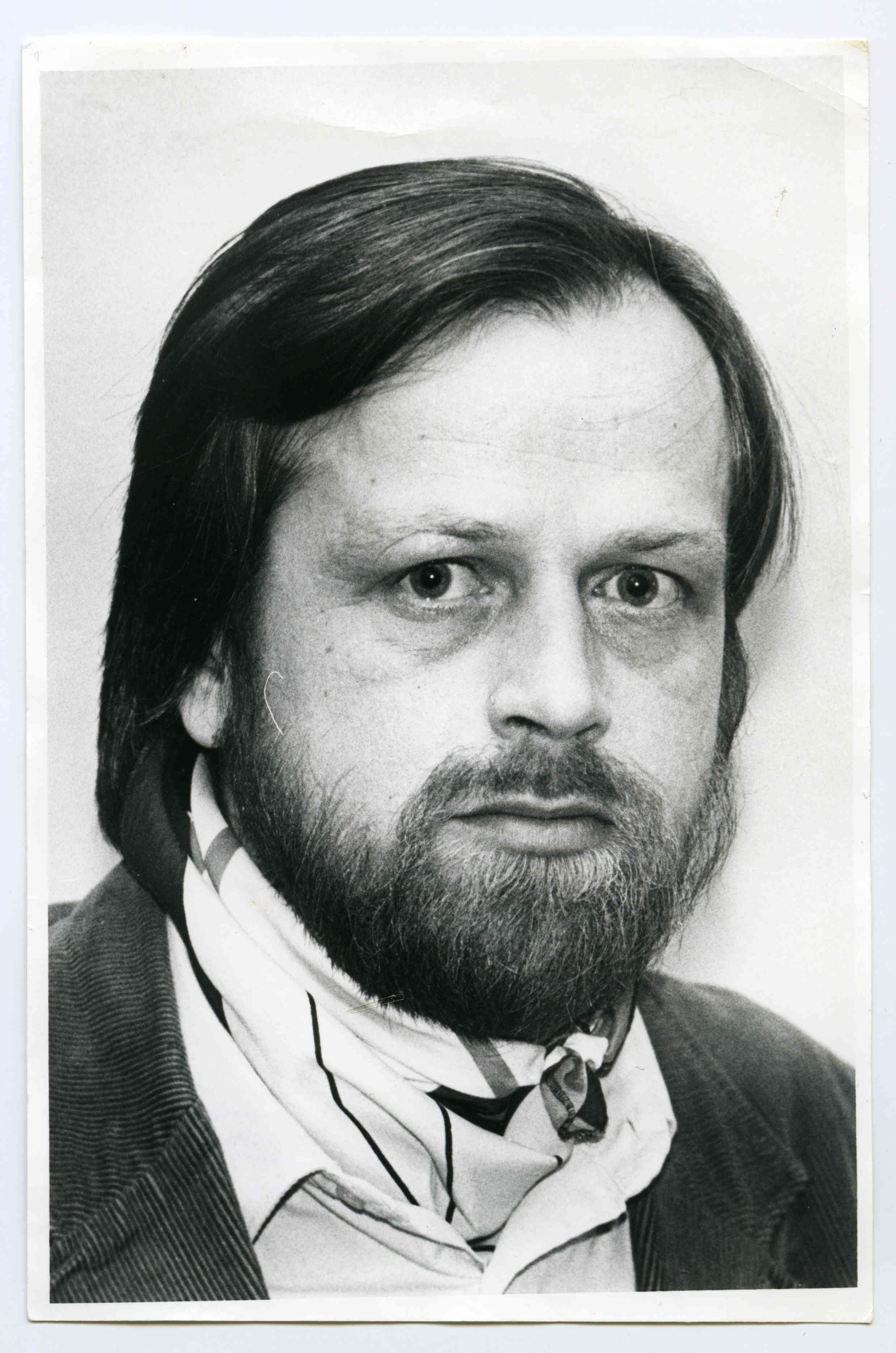
Peep Ilmet
Peep Ilmet (given name Peep Gorinov, b. 30. X 1948) is a poet and translator.
Ilmet was born at Palamuse, Jõgeva county. From 1956 to 1964 he attended Avinurme school and matriculated from Nõo secondary school in 1967. Thereafter he studied land use at the Estonian Academy of Agriculture. After two years’ military service he enrolled to study history at Tartu State University in 1970. He attended the university for two years. From 1972 to 1975 he worked as a binder and restorer in Tartu University Library, and then lived for four years in Läänemaa county, where he worked as a technician and senior supervisor in the Matsalu state nature reserve. In 1980 he settled in Tallinn, where he was a restorer for 16 years, initially at the national art gallery, later at the Kanut restoration enterprise. Since 1996 Ilmet has been a freelance poet. Peep Ilmet has been a member of the Estonian Writers’ Union since 1986. He is married to the translator and publisher Krista Kaer.
Ilmet’s first literary texts appeared in the late sixties in the manuscript almanacs Õitsev tuul (‘Blossoming Wind’), Kamikaze, Jumala tuul (‘The Wind of God’), Karjamaa (‘Pastureland’), and volumes I, II and IV of the almanac Vigilia. In 1977 Ilmet’s first poems appeared in the journal Looming. His debut collection Tuulekannel (‘Zither of the Wind’) appeared in 1980. The word ‘wind’ appears often in the titles of Ilmet’s works of poetry; the critics have called the wind Ilmet’s ‘signature’. Ilmet’s poetry is close to nature; he makes use of the imagery from ancient Estonian beliefs. In his work, rhyming poetry in a fixed form predominates.
In his very first collection he created a new poetic form, the liiving, named after Juhan Liiv. Ilmet’s own genre, the liiving, is in the compact poetic form with the syllable pattern 4-4-8-4 as used in Juhan Liiv’s 1911 poem Sügise tuul (‘Autumn Wind’). Ilmet uses the letter y instead of ü, which, along with the archaic and dialect vocabulary, makes his work recognisable.
Sixteen of Ilmet’s poetry collections have appeared in print. His poetry has been translated into English, Finnish and Russian, his short prose into German.
Ilmet has translated from Russian, and rendered into verse poems and excerpts from English, French, German, Hungarian, Tajik and other languages for more than fifty translated books of prose. The biggest of these have been Rudyard Kipling’s ‘Tales’ (1983) and ‘The Jungle Book’ (2001), Oscar Wilde’s ‘The Ballad of Reading Gaol’ (translated from English with Krista Kaer), Charles Perrault’s ‘Fairy Tales’ (2007, the verse parts translated from French together with Madis Jürviste and Madli Kütt).
Ilmet has published articles, essays and reviews, and compiled several poetry collections. With the words of his poems many Estonian bands and artists (Ultima Thule, Tõnis Mägi, Ivo Linna, Silvi Vrait, Kukerpillid and many more) have composed songs, some of which have become classics of Estonian pop music. With folk musicians from Viljandi Culture Academy he issued the cassette Hingesoo järv (‘Hingesoo Lake’).
In 2011 Ilmet produced a handbook to bookbinding, Koduköide (‘Home Bookbinding’).
L. P. (Translated by C. M.)
Books in Estonian
Poetry
Tuulekanne. Tallinn: Eesti Raamat, 1980. 55 lk.
Tuuletee; Ajastaja. Tallinn: Eesti Raamat, 1982. 38 lk.
Matsalu mailt. Tallinn: Eesti Raamat, 1986. 39 lk.
Tuul tuli. Tallinn: Eesti Raamat, 1986. 77 lk.
Tuulatud luuletused. Tallinn: Eesti Raamat, 1988. 136 lk.
Linnamägi tuulte vallas: tuulatud luuletusi 1973–1989. / A drumlin in the wind. Tõlkinud Krista Kaer. Turku: Takapiru/Gillot, 1989. 60 lk.
Mõraseks mõistetud meel. Tallinn: Eesti Raamat, 1991. 76 lk.
Tuuldunud luule. Tallinn: Varrak, 1998. 179 lk.
Muigelsui ent tõsimeeli. Tallinn: Eesti Keele Sihtasutus, 2001. 114 lk.
Meilmail. Tallinn: Varrak, 2009. 107 lk.
Taevall. Tallinn: Varrak, 2009. 44 lk.
Ikebana – elavad lilled. Dagmar Kotli. Luuletanud Peep Ilmet. Tallinn: Varrak, 2010. 187 lk.
Aega on mu meelest. Tallinn: Varrak, 2013. 74 lk.
Ajastaja. Tallinn: Penikoorem, 2012. 152 lk.
Sõõlatud luule. Tallinn: Eesti Keele Sihtasutus, 2013. 448 lk.
Linnumeeli. Tallinn: Varrak, 2015. 68 lk.
Ykskõikvus. Tallinn: Varrak, 2016. 77 lk.
Short prose
Ilmunud aegade hämarast [jutud ja luuletused]. Tallinn: Kupar, 1993. 67 lk.
Miscellaneous
Koduköide: käsiraamat neile, kes soovivad ise raamatuid köita. Peep Gorinov. Tallinn: Varrak, 2011. 151 lk.



